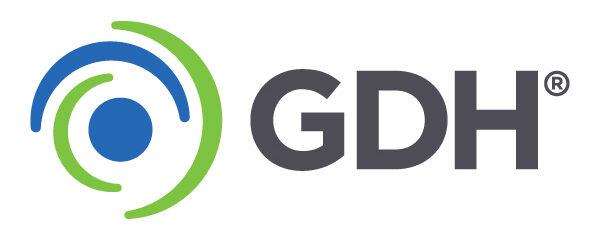Tech Interviews Are Getting Harder—Here’s How to Prepare in 2025
Key Takeaways
- Tech interviews are becoming increasingly complex, incorporating tougher coding assessments, real-world problem-solving, and multi-stage behavioral evaluations.
- Candidates need a well-rounded skill set, including mastery of algorithms, system design, and behavioral interview techniques.
- Strategic preparation is key, from structured coding practice to mock interviews and networking with industry professionals.
- GDH provides IT professionals with job opportunities and expert career guidance that prepare candidates well for modern tech hiring challenges.
If you’re preparing for an IT job interview in 2025, expect a more rigorous process than ever before. Gone are the days when a simple coding test and a conversation about your experience were enough to land a job.
Tech employers now prioritize candidates who can tackle real-world challenges, solve complex coding problems, and work effectively in team environments.
Software developers, data engineers, cybersecurity experts, and other IT professionals must adopt new strategies to succeed in interviews.
This guide breaks down why tech interviews are getting tougher, the essential skills you need to master, and practical steps to enhance your interview preparation.
Why Are Tech Interviews Getting Harder?
Hiring techniques for tech roles are changing rapidly. Employers are shifting away from theoretical knowledge and focusing more on real-world applications, system scalability, and problem-solving in high-pressure environments.
Here’s why today’s interviews are significantly more demanding than they were just a few years ago.
The Rise of AI in Hiring Assessments
Companies are increasingly using artificial intelligence to streamline their hiring processes. AI tools are now utilized to evaluate coding skills, analyze behavioral responses, and assess problem-solving abilities. This shift aims to enhance efficiency and objectivity in recruitment.
For instance, Chipotle Mexican Grill has implemented an AI-powered bot named Ava Cado to engage with applicants, answer queries, schedule interviews, and expedite job offers, reducing the hiring process from 12 days to just four. This adoption of AI has led to over 85% completion rates in job applications.
Emphasis on Real-World Problem Solving and System Design
Modern tech roles demand professionals who can tackle real-world challenges and design scalable systems. Consequently, interviews now focus more on assessing a candidate’s ability to navigate complex scenarios and develop effective solutions.
This trend reflects the industry’s need for talent capable of contributing to innovative projects and driving business growth.
Increased Focus on Behavioral and Soft Skills
Technical prowess alone no longer guarantees success in tech roles. Employers are placing greater importance on behavioral and soft skills, such as communication, teamwork, and adaptability.
This shift acknowledges that while technical skills are essential, the ability to collaborate and align with company culture is equally important.

The Essential Skills You Need to Succeed in 2025 IT Interviews
For job seekers, this shift means that traditional preparation methods are no longer enough. Instead of just focusing on coding problems, candidates must hone their ability to think critically, structure their responses clearly, and showcase their problem-solving approaches effectively.
Here are the core skills interviewers are looking for in tech role candidates.
For Developers and Software Engineers: Algorithms and Data Structures Matter
Not every IT role involves heavy coding, but for software developers, backend engineers, and full-stack roles, mastering data structures and algorithms remains crucial.
- Strengthen your foundation. Understand arrays, linked lists, trees, graphs, and dynamic programming—especially for developer roles.
- Regularly solve problems. Use platforms like LeetCode or HackerRank to sharpen coding skills relevant to technical interviews.
- Focus on code optimization. Interviewers often care about efficiency, so be ready to explain how you’d improve or refactor your code.
System Design Skills for Senior-Level Tech Roles
This skill set is vital for mid-to-senior roles in development, DevOps, and cloud architecture—not all IT professionals will be tested here.
- Demonstrate architectural thinking. Be prepared to outline scalable, resilient systems for real-world use cases.
- Know the tools. Understand when and how to use microservices, cloud platforms (AWS, Azure), and API gateways.
- Balance tradeoffs. Explain decisions like choosing between NoSQL and relational databases, or load balancing methods.
Real-World Coding Assessments for Hands-On Roles
Whether you’re applying as a front-end developer, data analyst, or QA tester, expect take-home tests or live coding—but the format will vary.
- Practice real workflows. Simulate building apps, debugging APIs, or analyzing data—whatever fits your role.
- Show your thinking. During live sessions, explain your logic and decision-making clearly, even if you’re not 100% confident in your final code.

Soft Skills Are Now a Must-Have Across Tech Roles
From cybersecurity to software development, hiring managers want professionals who can communicate, adapt, and collaborate.
- Be a team player. Expect questions that assess your ability to collaborate, especially across departments.
- Show resilience. Talk about how you’ve overcome obstacles or stayed adaptable in a shifting tech landscape.
- Take initiative. Even if you’re not in a leadership role, interviewers want to hear about ownership and proactive problem-solving.
Not every IT interview will test the same skills. Customize your preparation based on the role you’re targeting—whether it’s software engineering, DevOps, cybersecurity, data analysis, or IT support. The more tailored your practice, the better your results will be.
How to Prepare for Your Next Tech Interview
With interviews becoming more rigorous, having a solid preparation plan can make all the difference.
Here are some actionable steps to boost your readiness.
1. Be Prepared for AI-Driven Assessments
AI tools assess various aspects of a candidate’s profile, including:
- Resume screening. AI analyzes resumes for relevant keywords and experiences, filtering candidates who match job requirements.
- Behavioral analysis. Some platforms evaluate video interviews, assessing factors like body language and speech patterns to gauge cultural fit.
- Coding efficiency and accuracy. AI-driven coding platforms assess not just whether your solution is correct but also how optimized and efficient your code is.
- Problem-solving approach. Some AI systems evaluate how candidates break down and approach complex challenges rather than just focusing on the final solution.
To be ready for AI evaluations:
- Optimize your resume. Incorporate relevant keywords and tailor your resume to the job description to pass AI screenings.
- Prepare for video interviews. Practice speaking clearly and confidently on camera, and ensure a professional setting to make a positive impression.
- Focus on clean, efficient code. When completing AI-monitored coding assessments, write well-structured, optimized solutions that demonstrate clarity and efficiency.
- Think out loud. If AI evaluates your problem-solving process, narrate your thought process logically and clearly during recorded assessments.
2. Build a Study Plan for Coding Tests
Structured study is essential to master technical skills.
Consider:
- Practicing coding problems daily for at least 1-2 hours.
- Focusing on patterns in problem-solving, rather than just memorizing solutions.
- Revisiting previous interview questions from companies you’re applying to.
3. Practice with Mock Interviews
Simulating real interviews can help reduce anxiety and improve performance.
These tactics can help.
- Use platforms like Pramp, Interviewing.io, or LeetCode’s mock interviews.
- Record yourself solving problems and analyze areas for improvement.
- Participate in peer coding interviews to get constructive feedback.
4. Use AI and Automation Tools for Interview Prep
AI works both ways: Employers use it for assessing a candidate’s fit, but it’s also a valuable tool for job seekers.
Here are some ways AI can help with IT interview prep.
- Use AI for coding assistance and optimization. Tools like ChatGPT and GitHub Copilot help generate, refine, and debug coding solutions.
- Simulate real technical interviews. AI-powered platforms like Interviewing.io, CodeSignal, and LeetCode AI provide automated coding challenges, analyze your responses, and offer instant feedback on efficiency, structure, and correctness.
- Enhance behavioral interview practice. AI-driven platforms like HireVue and Yoodli analyze recorded responses to common interview questions, evaluating speech clarity, tone, confidence, and facial expressions.
- Automate mock interview sessions. AI-powered chatbots can simulate both technical and behavioral interviewers, providing real-time feedback on answers, coding approach, and logical structuring.
- Improve resume and cover letter optimization. AI-based tools like Resume Worded and Jobscan analyze resumes against job descriptions to help you use the right keywords and formatting to pass AI-driven applicant tracking systems (ATS).

5. Expand Your Professional Network
Finding a great IT job in a competitive job market often comes down to who you know. Many of the best tech roles are filled through connections before they even appear on job boards. A strong network is a critical tool for uncovering hidden opportunities and standing out to recruiters and hiring managers.
To expand your professional network and increase your chances of landing a top IT role:
- Attend tech meetups, hackathons, and conferences.
- Connect with recruiters and hiring managers on LinkedIn.
- Ask for referrals from current employees at companies you’re interested in.
- Work with a career coach or mentor. Candidates who receive professional job coaching are 2.67 times more likely to secure a job offer.

How GDH Helps IT Job Seekers Succeed
Finding the right opportunity in the tech job market requires more than great technical skills. GDH provides personalized support to help IT professionals connect with roles that match their expertise and career goals.
Here’s how we support IT professionals:
- Access to top tech job openings. We connect candidates with exclusive opportunities that aren’t always publicly advertised.
- Personalized career coaching and resume assistance. Our team helps job seekers fine-tune their resumes, practice interviews, and develop winning job search strategies.
- Matching candidates with companies that align with their skills and career goals. We ensure that both technical expertise and cultural fit are taken into account.
Want to stand out in today’s competitive tech job market? Let GDH provide the connections, coaching, and opportunities you need to land your next role. Browse our open jobs.







